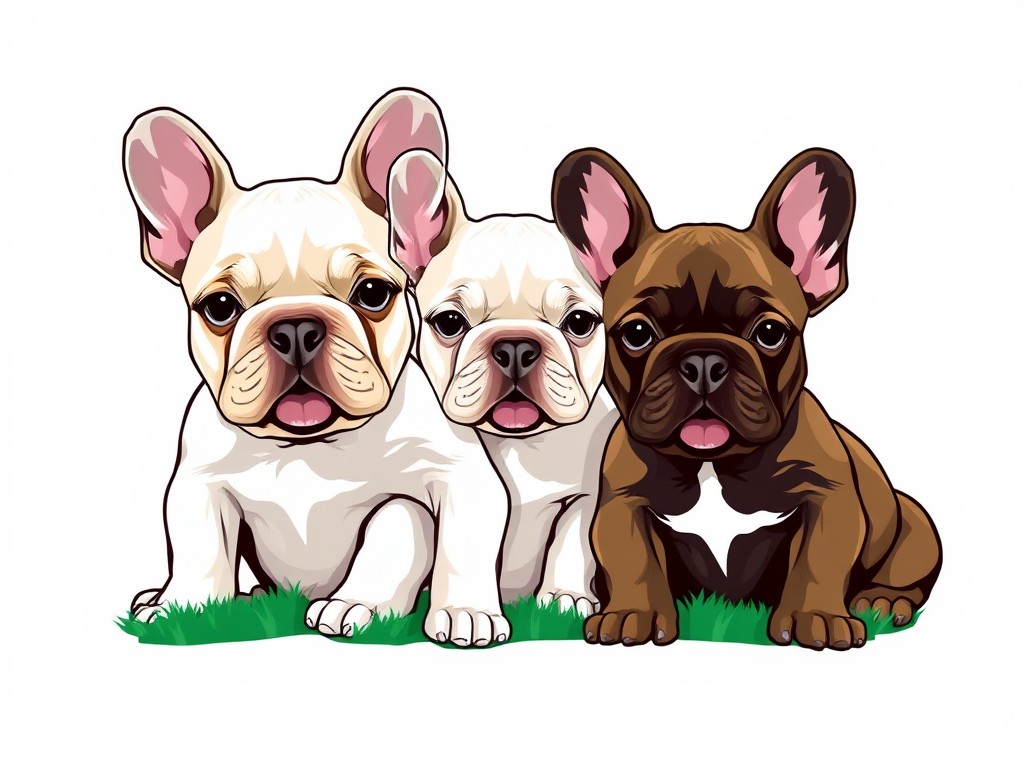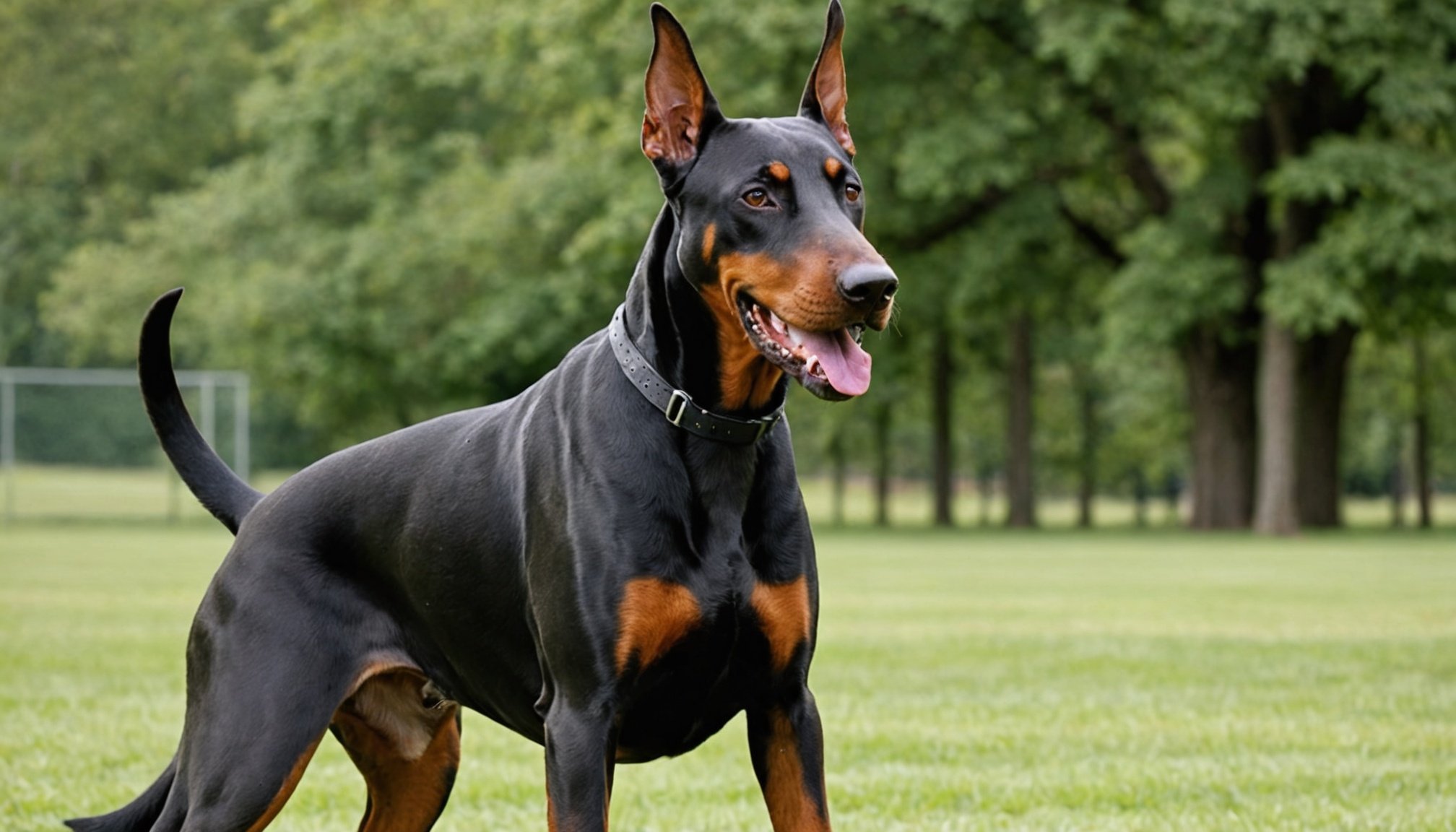Unlocking Excellence: Essential Training Techniques for Doberman Pinschers to Excel in Competitions
Understanding the Doberman Pinscher Breed
Before diving into the training techniques, it’s crucial to understand the characteristics of the Doberman Pinscher breed. Known for their intelligence, loyalty, and athletic build, Doberman Pinschers are one of the most versatile dog breeds. Originating in Germany in the late 19th century, they were bred by Friedrich Louis Dobermann to serve as guard dogs, police dogs, and companions.
"Doberman Pinschers are highly intelligent and responsive to training. They thrive on mental and physical stimulation," says Jane Smith, a professional dog trainer specializing in German breeds.
The Importance of Positive Reinforcement
Positive reinforcement is a cornerstone of effective dog training, especially for breeds like the Doberman Pinscher that are highly intelligent and sensitive. This method focuses on rewarding desired behaviors rather than punishing undesired ones.
A lire aussi : Ultimate road trip companion: a complete guide to comfortably traveling with your great dane
Key Principles of Positive Reinforcement
- Reward Desired Behavior: Use treats, praise, and affection to reinforce good behavior.
- Be Consistent: Use consistent commands and hand signals to avoid confusion.
- Avoid Punishment: Punishment can lead to fear and mistrust, hindering the training process.
- Keep Sessions Short: Training sessions should be short and engaging to maintain the dog’s focus.
Obedience Training
Obedience training is fundamental for any dog, but it is particularly important for Doberman Pinschers due to their strong will and intelligence.
Basic Commands
- Sit: Hold a treat above the dog’s head and move it backwards towards their tail. As they follow the treat with their nose, their bottom will lower into a sitting position.
- Stay: Start with the dog in a sitting or lying down position. Take a few steps back and say “stay.” Gradually increase the distance and time.
- Come: Use a treat or toy to lure the dog towards you. When they come, praise and reward them.
- Heel: Practice walking with the dog on a leash without pulling. Use treats and praise to keep them by your side.
Agility and Physical Training
Doberman Pinschers are naturally athletic and excel in dog sports that require agility and speed.
A voir aussi : Ultimate guide to smoothly introducing a new kitten into your dog-loving household
Agility Training
- Tunnels and Jumps: Start with simple obstacles like tunnels and jumps. Gradually increase the complexity as the dog becomes more confident.
- Contact Obstacles: Introduce contact obstacles like A-frames and dog walks. These require the dog to use their physical strength and coordination.
- Weave Poles: Weave poles are a great way to improve the dog’s agility and focus. Start with wide spacing and gradually narrow the poles.
Physical Conditioning
- Running and Jogging: Doberman Pinschers need regular exercise to stay fit. Running or jogging with your dog is an excellent way to provide physical stimulation.
- Playtime: Engage in play activities like fetch or hide-and-seek to keep the dog active and mentally stimulated.
Mental Stimulation
Mental stimulation is as important as physical training for Doberman Pinschers. Here are some ways to provide mental stimulation:
Puzzle Toys
- Use puzzle toys filled with treats to challenge the dog’s problem-solving skills.
- Rotate toys regularly to keep the dog engaged and interested.
Scent Work
- Introduce scent work by hiding treats or toys with a specific scent. Encourage the dog to find them using their nose.
- Gradually increase the difficulty by hiding the scents in harder-to-reach places.
Interactive Games
- Play interactive games like “find the treat under the cup” or “hide-and-seek” to keep the dog’s mind active.
Addressing Behavioral Issues
Despite their intelligence and trainability, Doberman Pinschers can sometimes exhibit behavioral issues if not properly trained or stimulated.
Common Issues
- Aggression: Often a result of lack of socialization or improper training. Ensure your dog is well-socialized and trained using positive reinforcement.
- Destructive Behavior: Caused by boredom or lack of mental stimulation. Provide adequate physical and mental stimulation to keep the dog engaged.
- Separation Anxiety: Can be addressed by gradual separation and providing the dog with calming aids like pheromone diffusers.
Working with a Professional Dog Trainer
While many owners can successfully train their Doberman Pinschers, working with a professional dog trainer can be highly beneficial.
Benefits of Professional Training
- Customized Training Plans: A professional trainer can create a training plan tailored to your dog’s specific needs and goals.
- Expert Guidance: Trainers can help you overcome behavioral issues and improve your training techniques.
- Socialization: Training classes provide an excellent opportunity for socialization, which is crucial for any dog breed.
Example Training Schedule
Here is an example of a weekly training schedule for a Doberman Pinscher:
| Day | Morning Session | Afternoon Session |
|---|---|---|
| Monday | Obedience Training (Basic Commands) | Agility Training (Tunnels and Jumps) |
| Tuesday | Mental Stimulation (Puzzle Toys) | Physical Conditioning (Running) |
| Wednesday | Socialization (Training Classes) | Scent Work |
| Thursday | Obedience Training (Advanced Commands) | Interactive Games |
| Friday | Agility Training (Contact Obstacles) | Mental Stimulation (Hide-and-Seek) |
| Saturday | Physical Conditioning (Jogging) | Socialization (Park Visits) |
| Sunday | Review and Practice All Skills | Relaxation and Bonding Time |
Success Stories and Anecdotes
Many Doberman Pinschers have excelled in various dog sports and competitions thanks to consistent and positive training.
"I started training my Doberman Pinscher, Max, when he was just a puppy. With positive reinforcement and consistent training sessions, he became a champion in agility and obedience competitions. He loves the mental and physical stimulation, and it has strengthened our bond immensely," says Sarah Johnson, a proud Doberman Pinscher owner.
Training a Doberman Pinscher to excel in competitions requires a combination of positive reinforcement, consistent training, and both physical and mental stimulation. By understanding the breed’s characteristics, using the right training techniques, and addressing any behavioral issues promptly, you can unlock your dog’s full potential.
Whether you are a seasoned dog owner or a newcomer to the world of dog training, the key is to be patient, consistent, and positive. With the right approach, your Doberman Pinscher can become a star in any dog sport or competition.









